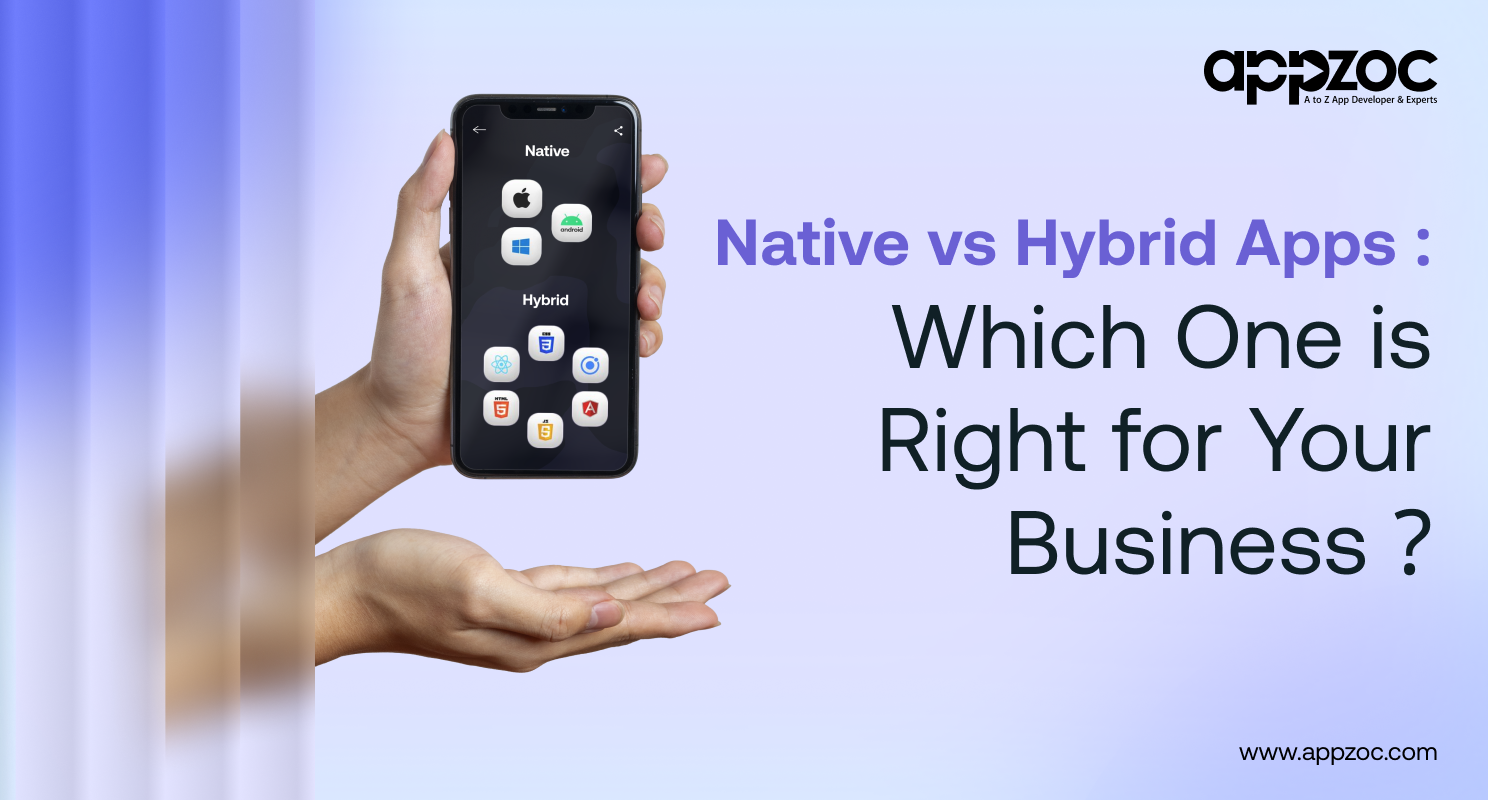
Flutter
Make the most of this cutting-edge technology by developing apps quickly! Our Flutter solutions have amazing features that can be used to create sleek, high-performance apps that can scale seamlessly across platforms.

In the mobile-driven tech world, businesses are faced with critical challenges when it comes to developing a mobile application. There comes a confusion at that particular moment to choose between hybrid or native mobile apps. It is a great competition to choose the right one as this plays a very crucial role in directly impacting the user experience, performance, development cost and time to market. A better understanding of the native and hybrid apps will help you choose the right one which aligns with your business. Integrating these applications has become a greater level of competition to meet in the mobile application development company in Kerala and other hybrid app development and native app development companies.
Let’s dive more into the topics through this blog. Let’s explore how native vs hybrid applications make it more of the right choice for your businesses.
What is a Native App?
Native applications are the specific software programs which are built specifically for a particular operating system or other platforms such as iOS and Android. This application is mainly used for mobile devices. These applications are designed with the help of certain programming languages and other developing tools. They allow it to leverage the full potential of the device’s hardware and its software features.
How does this application work?
Native applications as they are made of specific programming languages have their specifications. With programming languages such as Swift, Objective-C for iOS, Java and Kotlin for Android, they have helped in making the application more advanced. These applications can be stored directly from the Apple playstore and Google Playstore.
Advantages of Native Applications
Performance: Native applications are known for their high performance as they are built for a specific platform, allowing them to run smoothly and respond faster to user interactions.
User experience: Native applications are intuitive and responsive, and they are built to follow specific platform-based guidelines and user interface standards, making them feel more real to the users.
Access to device features: Native applications have access to device features like camera, microphone, locations GPS, biometric authentication, etc, allowing them to enjoy seamless integration with the device’s hardware.
Security Measures: Native applications have better security as they are developed with platform-specific libraries and API’s. These are regularly updated to address potential vulnerabilities.
These native applications have further disadvantages too, such as they are higher in costs and their maintenance is further complex. Developing native applications for different platforms, such as iOS and Android, requires two separate codebases, which is time-consuming and expensive. And along the way, maintaining two separate codebases is a bit difficult.
What are hybrid applications?
Hybrid applications are mobile applications which are developed using web technologies such as HTML, CSS and JavaScript. Hybrid applications run on different platforms with a single codebase. They are combined with elements of both web and native applications, thus making them accessible from all the app stores. These hybrid applications contain frameworks such as React Native, Flutter and Apache Cordova.
Advantages of Hybrid Apps
Faster development: as they are built with a single codebase, they require less time and hence they are cost-effective and less time-consuming.
Cross-platform compatibility: Hybrid applications, as they are built with a single code base, are compatible with running on multiple platforms. This ensures a consistent user experience.
Cost-effective: Hybrid apps are cost-effective, as they require a single codebase to run on different platforms. As native applications require two sets of codes, they are higher in cost and difficult to maintain. Whereas hybrid applications are easy to keep and cost-effective.
Easier updates: updating hybrid applications is very simple, as simple changes can be made to a single codebase and pushed to both platforms.
The disadvantages of hybrid applications from a hybrid app development company in Kerala are that they are limited to enabling access to device features. Hybrid applications may have restricted their access to some advanced device features. There are performance limitations seen in hybrid applications.
Hybrid app development and mobile app development companies in Kerala are finding challenges in choosing the right application. According to the qualities that align perfectly with the business, one can choose the correct application. Both native and hybrid applications have their limitations. Native applications excel in performance, user experience and advanced functionality but come with higher development costs and time. Hybrid applications offer faster development, lower costs and cross-platform compatibility but may compromise performance and user experience.
If performance and user experience are the top priority, then a native app is the perfect way to go. And if you are looking for an effective solution with a faster time to market, hybrid applications are the best choice.